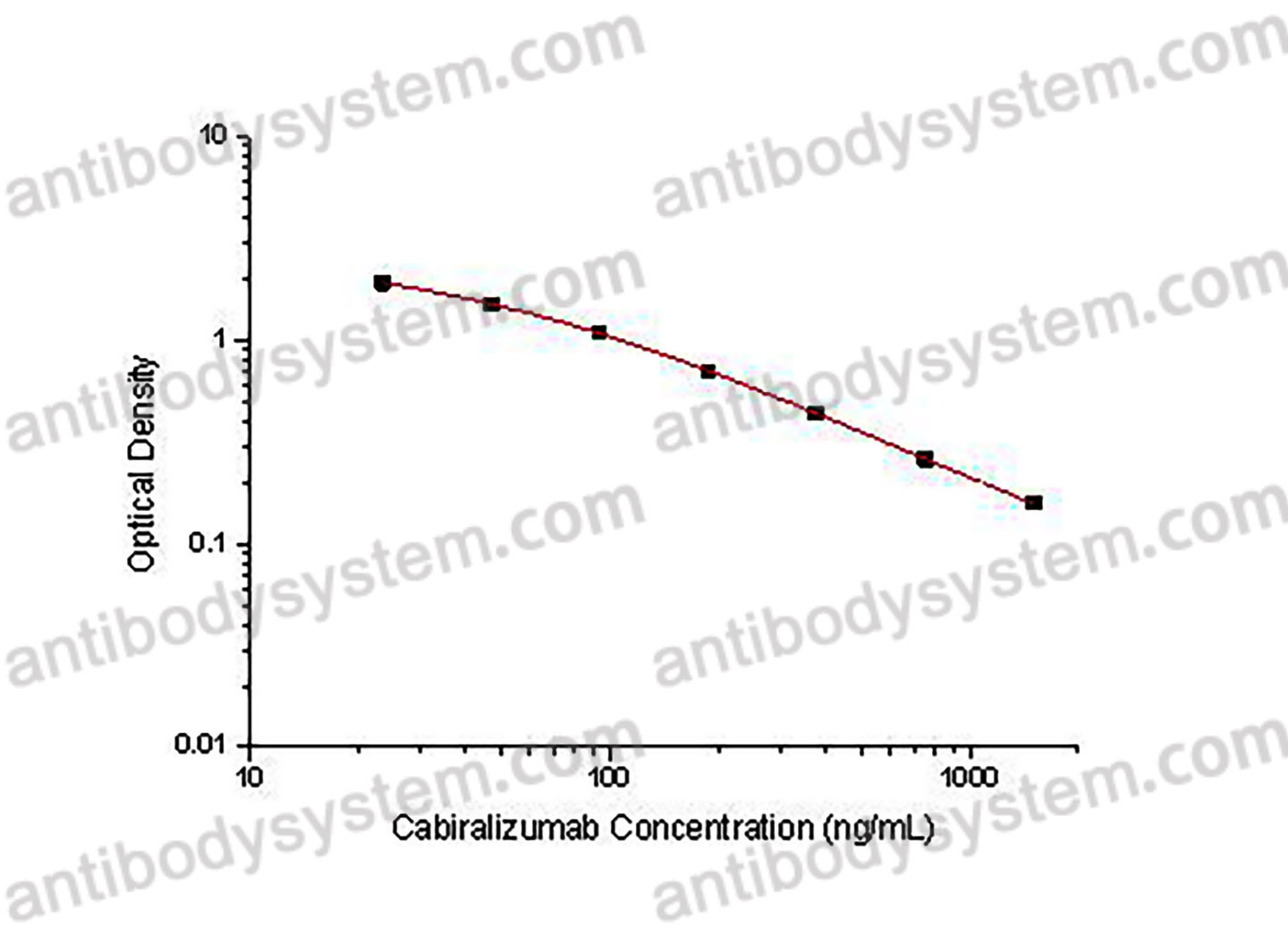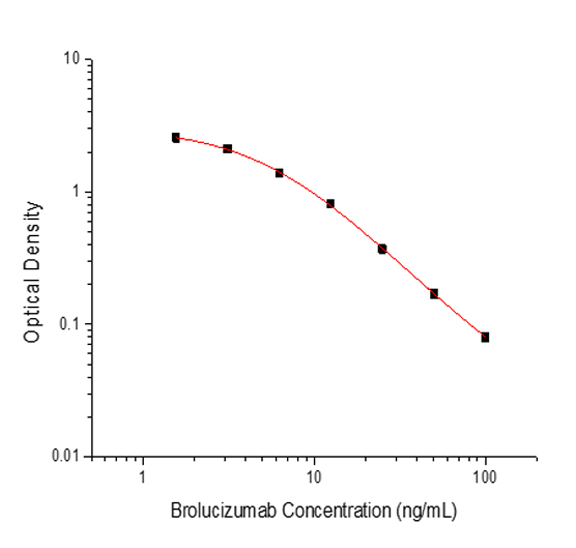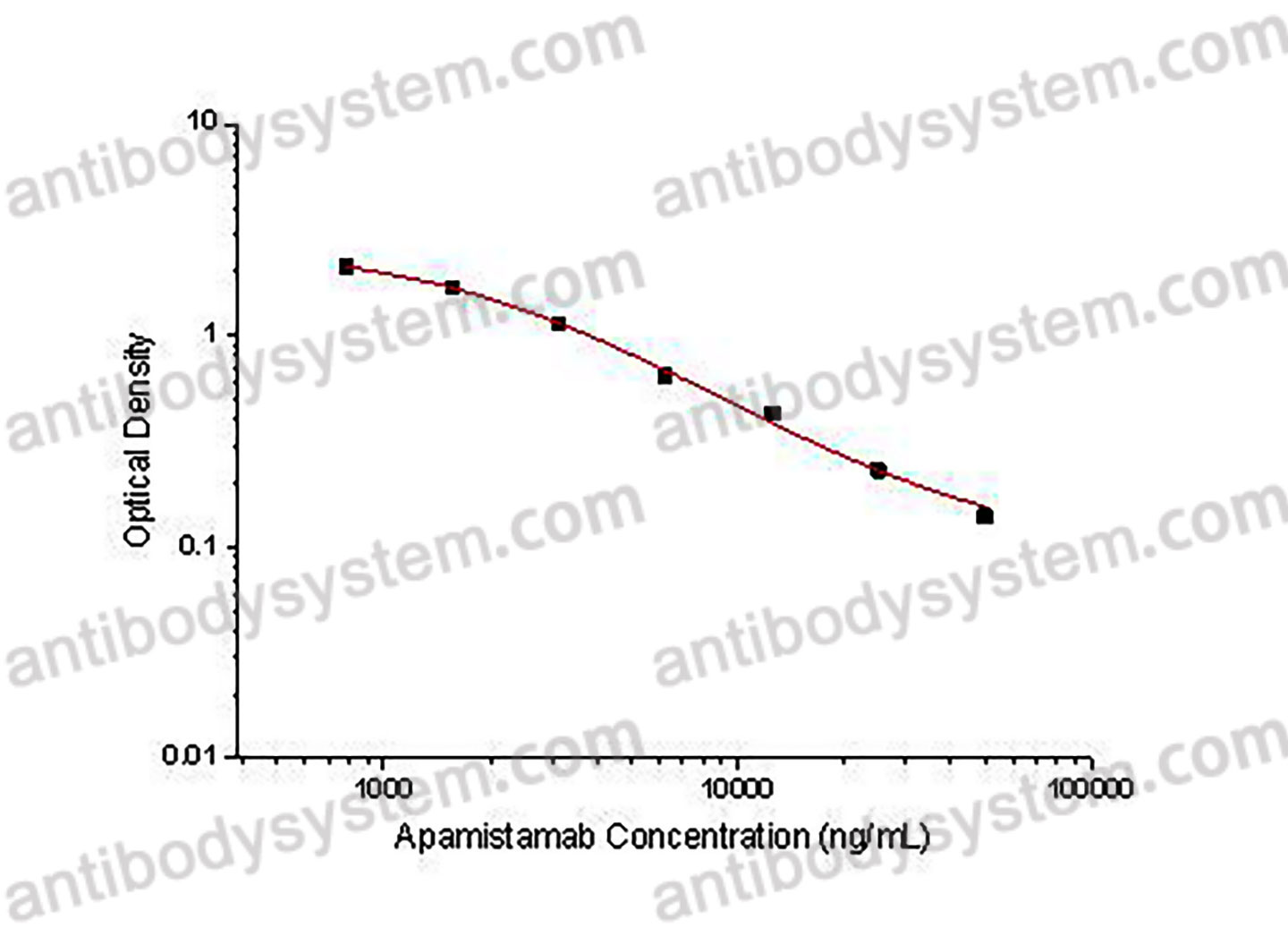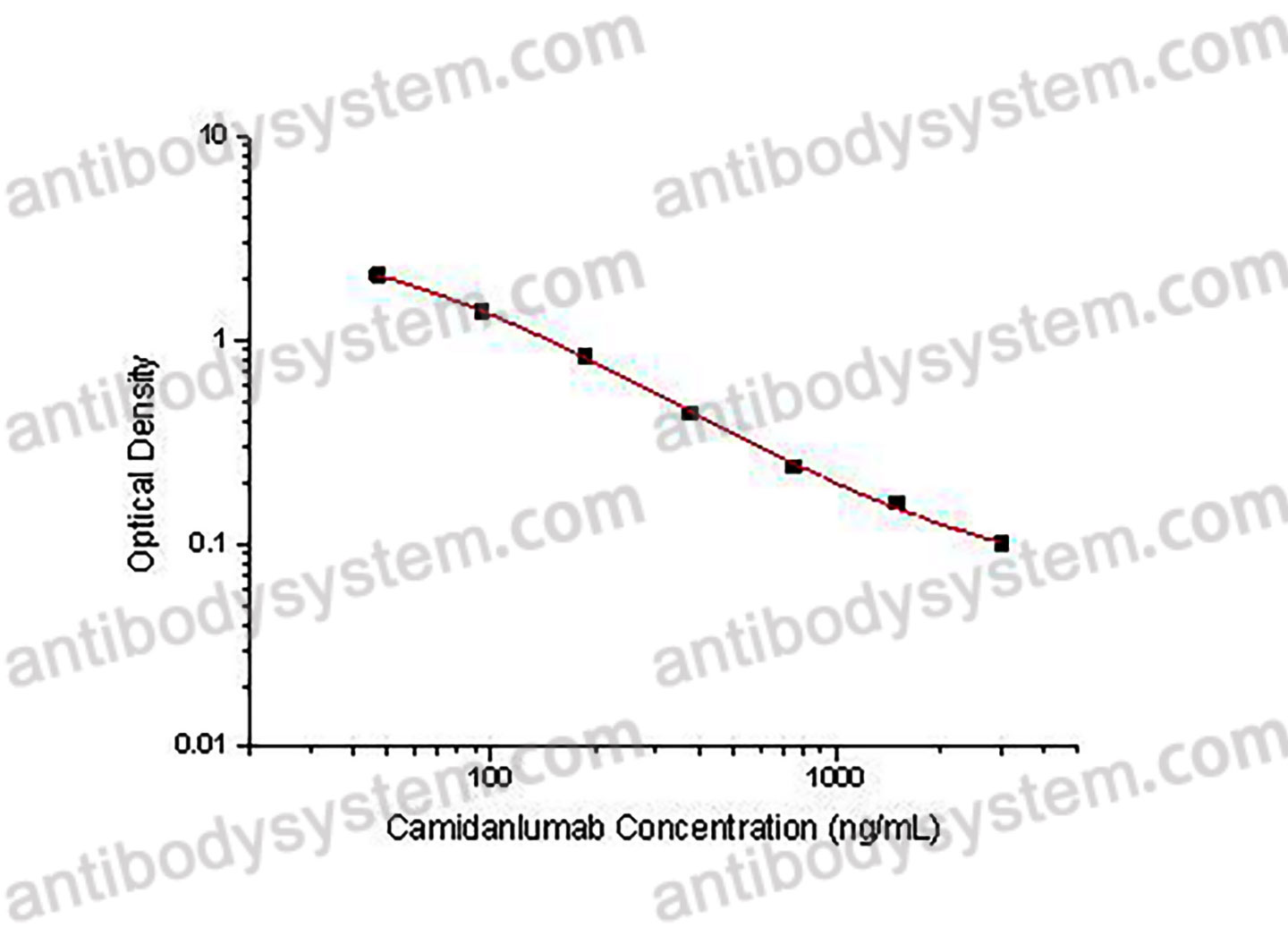Catalog No.
KDC25201
Description
PRINCIPLE OF THE ASSAY This assay employs the quantitative competitive enzyme immunoassay technique. Recombinant Human CD115 has been pre-coated onto a microplate. Standards or samples are premixed with biotin-labeled antibody and then pipetted into the wells. Cabiralizumab in the sample competitively binds to the pre-coated protein with biotin-labeled Cabiralizumab. After washing away any unbound substances, Streptavidin-HRP is added to the wells. Following a wash to remove any unbound enzyme reagent, a substrate solution is added to the wells and color develops in inversely proportion to the amount of Cabiralizumab bound in the initial step. The color development is stopped and the intensity of the color is measured.
Applications
Used for the quantitative determination of Cabiralizumab concentration in serum and plasma.
Detection method
Colorimetric
Sample type
Plasma, Serum
Assay type
Quantitative
Range
23.44 - 1,500 ng/mL
Sensitivity
8.10 ng/mL
Precision
Intra-Assay Precision (Precision within an assay): <20%
Three samples of known concentration were tested sixteen times on one plate to assess intra-assay precision.
Inter-Assay Precision (Precision between assays): <20%
Three samples of known concentration were tested in twenty four separate assays to assess inter-assay precision.
|
|
Intra-Assay Precision |
Inter-Assay Precision |
||||
|
Sample |
1 |
2 |
3 |
1 |
2 |
3 |
|
n |
16 |
16 |
16 |
24 |
24 |
24 |
|
Mean (ng/mL) |
781.0 |
173.7 |
38.3 |
694.4 |
140.3 |
32.5 |
|
Standard deviation |
45.2 |
11.1 |
5.5 |
46.6 |
11.2 |
2.7 |
|
CV (%) |
5.8 |
6.4 |
14.5 |
6.7 |
8.0 |
8.2 |
Recovery
80-120%
Shipping
2-8 ℃
Stability and Storage
When the kit was stored at the recommended temperature for 6 months, the signal intensity decreased by less than 20%.
Alternative Names
FPA-008, , CAS: 1613144-80-1
Background
Cabiralizumab (FPA008) is a humanized monoclonal antibody directed against colony stimulating factor-1 receptor (CSF1R), which is a member of the CSF1/PDGF receptor family of tyrosine-protein kinases. The developers of cabiralizumab including Apexigen, Bristol-Myers Squibb, Five Prime Therapeutics, University of Chicago and Yale University. Although it is reported to be designed for the treatment of tenosynovial giant cell tumor, the studies of treatment for pancreatic cancer, pigmented villonodular synovitis, malignant melanoma, non-small cell lung cancer, renal cell carcinoma and solid tumors also have been reported to be undergoing. The trails of pancreatic cancer and pigmented villonodular synovitis are in Phase II, while others are in Phase I. Orphan designation of cabiralizumab had been granted in the United States and European Commission for the treatment of pigmented villonodular synovitis.




